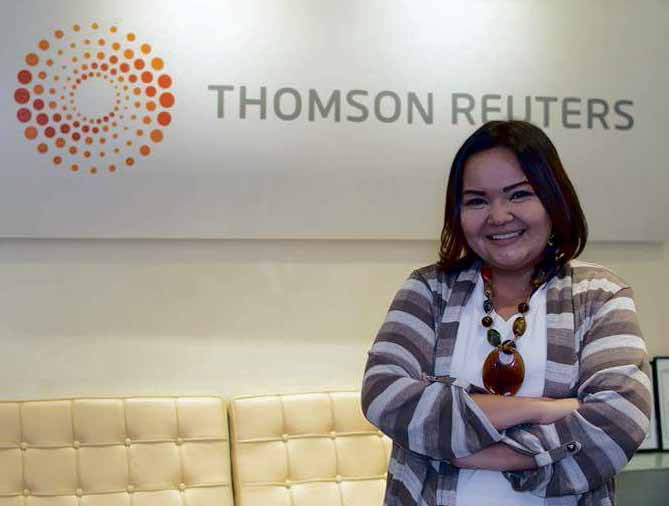PH volunteer’s online work for Africa earns UN praise

Bianca Marie Dayrit —JOHN PETER TEJERERO/CONTRIBUTOR
Spreading positive vibes online seems to be a tall order these days when social media, while intended to be a bridge for ideas, kinship and good will, could also be a mean street full of trolls and hecklers just waiting to pounce.
But not for Bianca Marie Dayrit whose volunteer online work has earned her recognition from the United Nations.
Dayrit, a publishing specialist at Thomson Reuters, and her teammate, Ezekiel Zekiya Mudimu, were recently chosen to be among the recipients of the UN Online Volunteering Award for 2017. The citation lauds advocates who “unremittingly seek to end poverty, reduce inequality and protect our planet” as keyboard warriors.
Top favorite
Last week, the pair also won the online vote as the top favorite among the UN honorees.
Dayrit and Mudimu were cited for raising awareness about child marriages in Zimbabwe through their work in the Simuka Africa Youth Organization.
The 12-year-old nongovernment organization (NGO), according to a UN statement, seeks “to promote the realization of young people’s rights and alleviate poverty in the communities of Norton, a town 40 kilometers west of Zimbabwe’s capital, Harare.”
Lately, the organization has been focusing its efforts on drawing world attention to child marriages in the African nation, where anyone as young as 16 is allowed to marry.
The 31-year-old Dayrit joined Simuka Africa last year, signing up to do volunteer work in a pilot partnership between Thomson Reuters and the UN. “They checked my profile, asked for my interests and skills, and after they’ve checked everything, matched me with Simuka Africa,” she told the Inquirer.
From August to December last year, she wrote 10 articles on Facebook about ending the practice of child marriages in Zimbabwe. According to Dayrit, such an environment has promoted a culture where many parents look forward to their teenage children’s betrothal to a moneyed spouse as a surefire way out of poverty.
One of her articles told the story of Monica, who was only 17 when she got married and bore twins, but was later abandoned by her husband. “She did not have the money or education to help finance their needs.”
In praising Dayrit’s work, the United Nations noted that “the girls and young women (reached by Simuka Africa initiative), as well as survivors of child marriage, received educational support as well as sexual and reproductive health education and services, reducing their vulnerability to exploitation and abuse.”
‘Skip A Meal’
Dayrit also used her online writing to raise support for the NGO’s “Skip A Meal” poverty alleviation campaign.
Under the campaign, a donor was asked to skip a meal and donate the money instead to Simuka Africa. It has since raised funds to provide a monthly supply of food and other basic necessities for 700 households in Zimbabwe, according to Dayrit.
In January, Dayrit said she was able to convince Simuka Africa to modify the Skip A Meal campaign as she noted that it was not exactly promoting a “healthy lifestyle.”
With the NGO’s nod, she launched the “Match a Meal” campaign: This time, donors were asked to match the cost of their meal and donate the money to Simuka Africa.
Mudimu, Dayrit’s Zimbabwean partner, gave her credit for “a sharp increase of followers and likes on our social media platforms, due to the improved relevance and quality of information posted—resulting in increased donations.”
A definite change
He added: “There was definitely a change in appreciation on the role of volunteerism to development within our organization.”
Doing volunteer work was nothing new to Dayrit, who took up Philippine Studies at De La Salle University, majoring in mass media.
“Whenever there was a calamity, I also posted (appeals for relief donations) on Facebook,” Dayrit said, citing her work particularly for the victims of Supertyphoon “Yolanda” (international name: Haiyan) in 2013. A friend would later collect and help forward the donated medicines and food items.
Social media can indeed be used to “reach out to more people locally and globally to help others in need,” Dayrit said, while acknowledging that this growing online community can also be easily infected with “negative vibes.”
“I think we can combat negativity by spreading goodness like this and learning to write for good causes and a higher purpose,” Dayrit said. “It’s not about one person making a difference, but rather it’s about the difference one person makes.”














